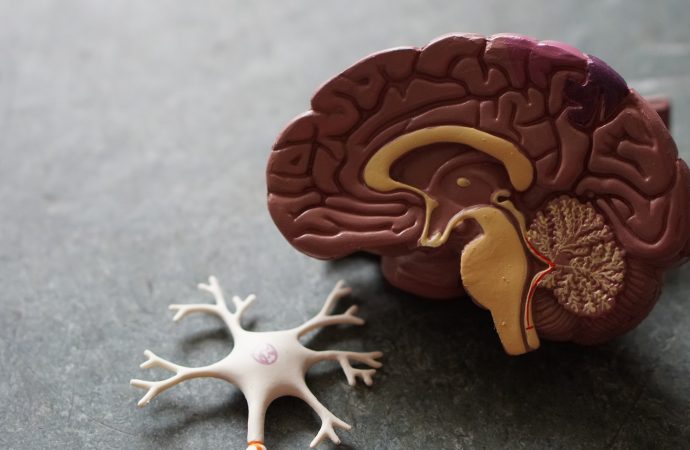Are you looking for a way to improve your mental health and well-being while getting in shape? Look no further than the mind-body connection. Studies have shown that workouts not only benefit our physical health, but also have a positive impact on our mental state. In this blog post, we’ll explore how exercise can boost
Are you looking for a way to improve your mental health and well-being while getting in shape? Look no further than the mind-body connection. Studies have shown that workouts not only benefit our physical health, but also have a positive impact on our mental state. In this blog post, we’ll explore how exercise can boost mood, reduce anxiety and depression, and increase overall happiness. So grab your gym clothes and get ready to feel good inside and out!
The Relationship between Workouts and Mental Health
Workouts have been shown to improve mental health and well-being. The mind-body connection is a well-established fact, meaning that our mental health is inextricably linked with our physical health. When we are physically healthy, we have less stress and anxiety, and better mental health. Conversely, when we are physically unhealthy, our mental health suffers as a result.
There are many reasons why working out is beneficial for mental health. Physical activity releases endorphins, which are chemicals that make us feel good. Exercise has also been shown to improve brain function and contribute to overall happiness and well-being. It can help reduce stress levels, increase self-confidence, lift moods, reduce feelings of isolation and loneliness, and boost creativity.
Additionally, exercise has been shown to be an effective treatment for mild depression and anxiety symptoms. Research suggests that regular exercise can help normalize blood sugar levels in people with diabetes mellitus type II or prediabetes; lower blood pressure; decrease the risk of heart disease; reduce the risk of stroke; improve sleep quality; increase weight loss; reduce abdominal fat storage; improve cholesterol levels;and even slow the progression of Alzheimer’s disease. Bottom line: Working out isn’t just good for your body—it’s good for your mind too!
Types of Mental Health Benefits from Workouts
Mental health benefits from workouts can be substantial, with some studies estimating that they can add up to an additional six months of life. Here are four types of mental health benefits that you may experience from working out:
1. Improved mood.
Many people report feeling happier and more positive after participating in regular physical activity. A 2015 study published in the “Journal of Behavior Therapy and Experimental Psychiatry” found that people who exercised reported improvements in their moods and anxiety levels, as well as better sleep quality. In fact, a 2014 study published in “The Journal of Positive Psychology” found that exercisers were twice as likely to report high levels of happiness and satisfaction with life than inactive individuals.
2. Increased energy levels.
Physical activity is known to increase energy levels, which can help you stay focused and motivated throughout the day. According to a 2017 study published in the “Journal of Exercise Science & Sports Nutrition,” active participants reported having greater stamina and strength than those who did not exercise. Additionally, a 2016 study published in “PLoS ONE” found that moderate aerobic exercise was associated with increased feelings of vigor and arousal – both traits that have been linked with improved cognitive performance.
3. Better sleep habits.
Working out has been shown to improve your sleep habits by tightening your abdominal muscles, which can reduce anxiety and stress hormones production during night time hours (1). Additionally, regular exercise has also been linked with improved quality of sleep due to
How to Make Your Workouts Help You Feel Better
Regular workouts can have a significant impact on mental health and well-being, according to the American College of Sports Medicine. In fact, working out has been linked with improvements in mental health and overall physical health, including reducing stress, anxiety and depression symptoms. Here are some ways workouts can improve your mental health:
Improve Mood and Stress Levels: One of the most common benefits of working out is that it can improve mood and reduce stress levels. According to research published in The Journal of Positive Psychology, regular exercise has a positive impact on mood by reducing feelings of boredom, loneliness and depression. Additionally, exercise has been shown to reduce anxiety levels by increasing self-confidence and social support networks.
Reduce Symptoms of Depression: Depressive symptoms are among the most common medical conditions associated with poor mental health. According to the National Alliance on Mental Illness (NAMI), exercise has been shown to be an effective treatment for reducing depressive symptoms in both adults and children. In a study published in The Lancet Psychiatry, scientists found that people who exercised had reduced rates of relapse into major depressive episodes six months after completing treatment compared to those who did not exercise.
Promote Healthy Brain Function: Exercise is also essential for promoting healthy brain function. According to research published in PLOS Computational Biology, regularly engaging in physical activity has been linked with improved cognitive function due to increased blood flow and better cell communication within the brain. This means that exercising can help preserve cognitive function as you age –
Conclusion
Exercise has been shown to have a positive impact on mental health and well-being. It is widely known that exercise can help to reduce anxiety and depression, increase concentration, improve sleep quality and even boost self-esteem. In this article, we discuss the various benefits of regular exercise for your mental health and how you can incorporate it into your routine to achieve these benefits. If you are looking for ways to improve your mental wellbeing without having to go through a strenuous workout, consider incorporating some light exercises into your day instead.

















Leave a Comment
Your email address will not be published. Required fields are marked with *